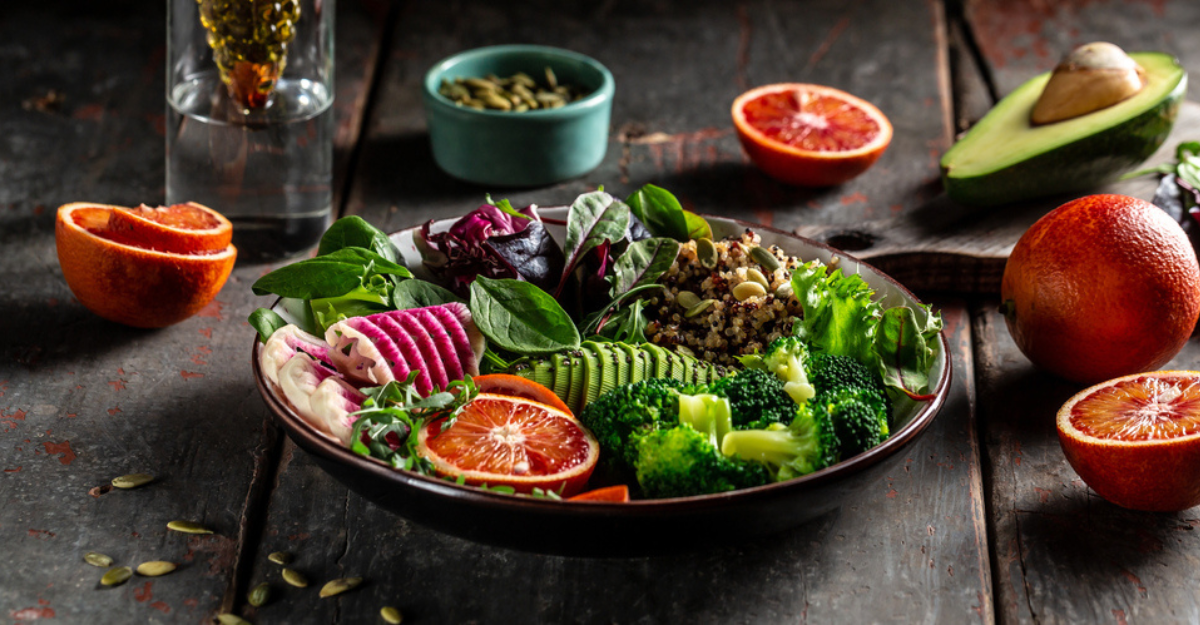Delicious Recipes for Vegetarians & Vegans: An InfoSphereOnline Guide
- 140 Views
- Tanu Sharma
- 22 July 2024
- Food and Recipes
Recognizing the Distinction Between Vegan and Vegetarian Diets
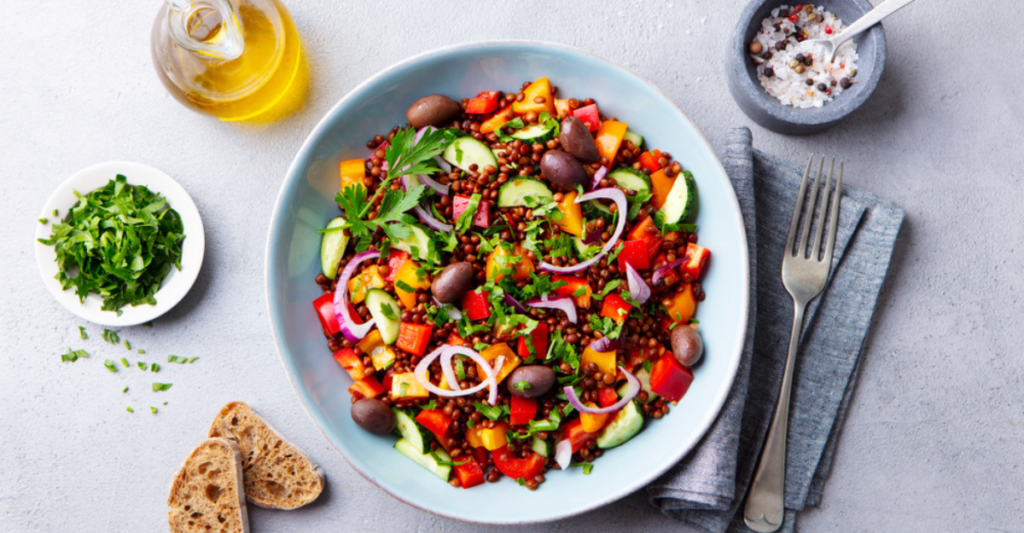
Though both vegan and vegetarian diets are plant-based eating styles, there are some key distinctions between them that should be understood. Generally speaking, vegetarianism permits the use of dairy products and eggs but forbids the consumption of meat, poultry, and fish. Conversely, veganism is a more stringent way of eating that forbids the consumption of any animal products, such as gelatin and honey.
Both diets offer numerous health benefits, including lower risks of heart disease and certain cancers. However, vegans may need to pay closer attention to their nutrient intake, particularly for vitamin B12, iron, and omega-3 fatty acids, which are more commonly found in animal products.
When adopting either diet, it’s crucial to ensure a balanced intake of nutrients. Vegetarians and vegans can obtain protein from sources like legumes, nuts, and whole grains. For those considering a switch to a plant-based diet, consulting with a nutritionist can help create a well-rounded meal plan that meets all dietary needs.
Crucial Components for Vegan and Vegetarian Cooking
When embarking on a vegetarian or vegan culinary journey, stocking your pantry with essential ingredients is crucial for success and culinary satisfaction. Plant-based proteins like lentils, chickpeas, and tofu form the foundation of many meatless meals, providing essential nutrients and a satisfying texture.
These versatile legumes and soy products can be transformed into a wide array of dishes, from hearty stews to crispy patties. Meat substitutes such as tempeh and seitan offer texture and versatility to dishes, mimicking the mouthfeel of traditional animal proteins. Tempeh, made from fermented soybeans, provides a nutty flavor and firm texture, while seitan, derived from wheat gluten, offers a chewy consistency reminiscent of meat.
These alternatives can be marinated, grilled, or stir-fried to create delicious plant-based versions of classic meat dishes. Nutritional yeast, a savory flavor enhancer, is indispensable for adding a cheesy taste to vegan recipes. This deactivated yeast is packed with B vitamins and imparts a umami flavor that can elevate sauces, dressings, and sprinkle toppings.
Quick and Easy Vegetarian Dishes for Beginners
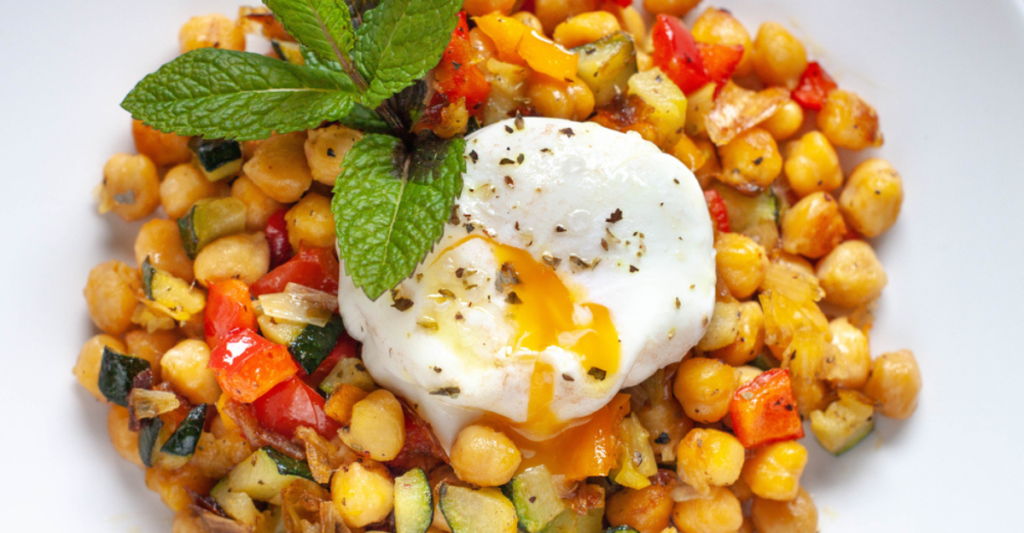
Embarking on a vegetarian journey doesn’t have to be complicated or time-consuming. There are plenty of quick and easy vegetarian dishes perfect for beginners. A vegetarian stir-fry is an excellent place to start, allowing you to combine a variety of colorful vegetables with tofu or tempeh for protein. Simply sauté your chosen ingredients in a pan with some oil and seasonings for a delicious meal in minutes.
Another choice that’s suitable for beginners is lentil soup, which is a filling and easy-to-make dish. Put the lentils in a pot with the vegetables, stock, and spices. Simmer until the lentils are cooked. Vegetable burgers are an excellent meatless option for individuals who want a more comfortable texture. They may be readily prepared at home or bought already prepared.
As you explore meat-free meals, you’ll discover a world of flavors and textures. Websites like infosphereonline offer a wealth of beginner recipes to help you get started. Remember, the key to successful vegetarian cooking is experimenting with different ingredients and finding combinations you enjoy. With these simple dishes, you’ll be well on your way to mastering vegetarian cuisine in no time.
Gourmet Vegan Recipes to Impress Your Guests
Elevate your culinary skills with these gourmet vegan recipes that are sure to impress even the most discerning palates. Start with a show-stopping vegan lasagna, layered with homemade cashew cream sauce and packed with roasted vegetables.
This dish demonstrates that plant-based substitutes may be just as fulfilling as meat-based ones.If you’re craving something sweet, check out the variety of plant-based dessert options. Savour the rich chocolate avocado mousse or the smooth coconut panna cotta with juicy berries on top.
These treats showcase how vegan ingredients can create luxurious textures and flavors without compromising on taste.Experiment with vegan cheese alternatives to add depth to your dishes. Nutritional yeast, for instance, lends a cheesy flavor to sauces and sprinkled toppings. Alternatively, create your own nut-based cheeses for a gourmet touch.At infosphereonline, we believe gourmet cooking isn’t limited to animal products.
Meal Planning and Prep for Vegetarian and Vegan Lifestyles
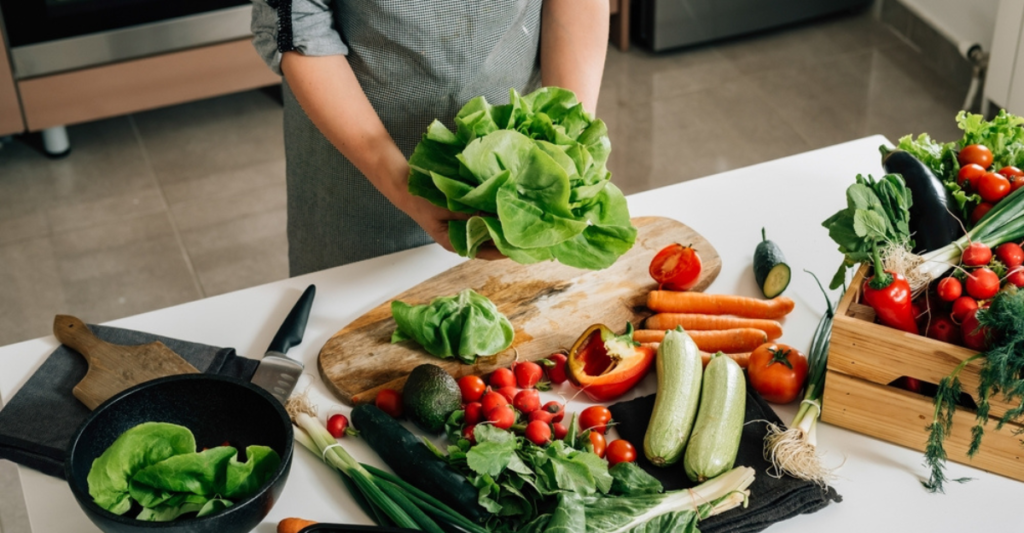
Planning and preparing meals is crucial to keeping a healthy vegetarian or vegan diet. Saving time and money while ensuring a diverse and nutritious diet is possible when you make the effort to plan your meals. Make a detailed vegetarian grocery list or stock your pantry with staples for veganism, such as healthy grains, legumes high in protein, and an assortment of fresh veggies.
Batch cooking is an excellent strategy for vegetarians and vegans, allowing you to prepare large quantities of staple items like grains, beans, and roasted vegetables that can be used in multiple dishes throughout the week. Some meal prep ideas include preparing versatile sauces, chopping vegetables in advance, and portioning out snacks for easy grab-and-go options.
To streamline your meal planning process, consider using online resources like infosphereonline meal planning tools. These platforms can help you generate recipes based on your dietary preferences, create shopping lists, and even suggest ways to repurpose leftovers.
Conclusion: Embracing a Plant-Based Diet with InfoSphereOnline
As we conclude our exploration of plant-based diets, it’s clear that this lifestyle choice offers numerous benefits for personal health, environmental sustainability, and ethical considerations. InfoSphereOnline has provided you with a comprehensive overview of the advantages, challenges, and practical tips for adopting a plant-based diet.Remember that transitioning to a plant-based lifestyle is a personal journey, and it’s okay to take small steps towards your goal.
Frequently ask questions?
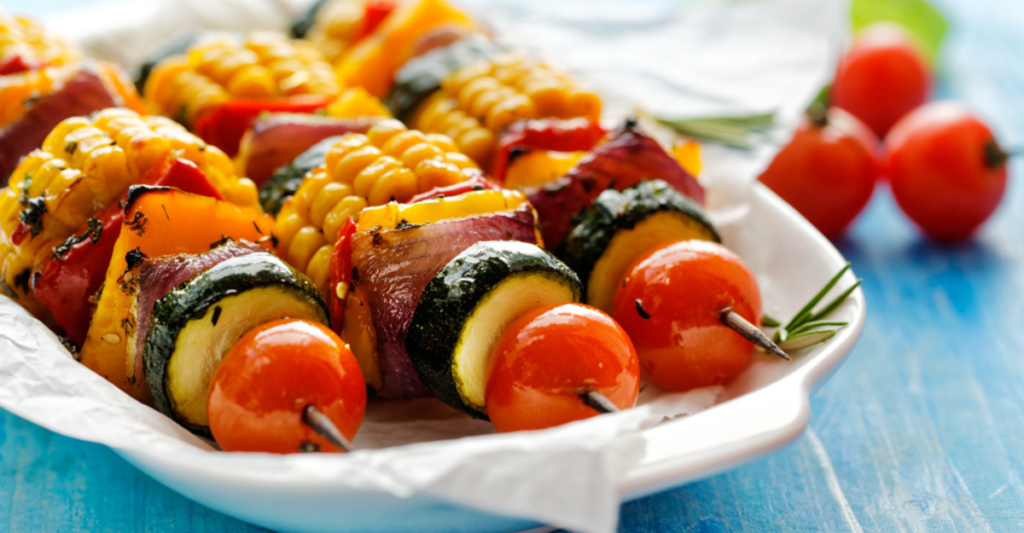
What are the key differences between vegetarian and vegan diets?
Vegetarian and vegan diets are plant-based but differ in their restrictions. Vegetarians exclude meat, poultry, and fish but may consume eggs, dairy, and honey. Vegans avoid all animal products, including non-food items like clothing and cosmetics. Vegans have stricter animal product restrictions, while vegetarians may find it easier to meet certain nutritional needs. Both diets can be healthy when well-planned, but vegans may need to pay extra attention to specific nutrients.
How can traditional meat-based recipes be adapted for vegetarian or vegan diets?
Adapting meat-based recipes for vegetarian or vegan diets can yield delicious, nutritious meals. Use plant-based substitutes that mimic meat’s texture and flavor:- Mushrooms for meaty texture and umami in stroganoff or stir-fries- Lentils and beans for protein in chili or shepherd’s pie- Marinated tofu and tempeh for various meat textures- Crumbled firm tofu or plant-based ground “meat” for recipes requiring ground meat- Seitan for its meat-like texture and flavor absorptionEnhance savory qualities with nutritional yeast, soy sauce, herbs, and spices.
Which cuisines are known for their diverse vegetarian and vegan options?
Vegetarian and vegan options are abundant in global cuisines, allowing plant-based eaters to explore diverse flavors. Indian cuisine excels with lentil and vegetable dishes, while Mediterranean food offers options like falafel and Greek salads. Asian cuisines, particularly Thai, Vietnamese, and Japanese, provide numerous plant-based choices.
Recent Posts
- Your Ultimate Guide to Health and Fitness: Achieving a Balanced Lifestyle
- The Rise of Samay Raina: A Comedian Redefining Indian Comedy
- Get Creative: Your Ultimate Guide to DIY and Crafts for Everyone
- Delicious Adventures: Your Ultimate Guide to Food and Recipes
- Best Places for Solo Travel in India: A Budget Traveler’s Guide

